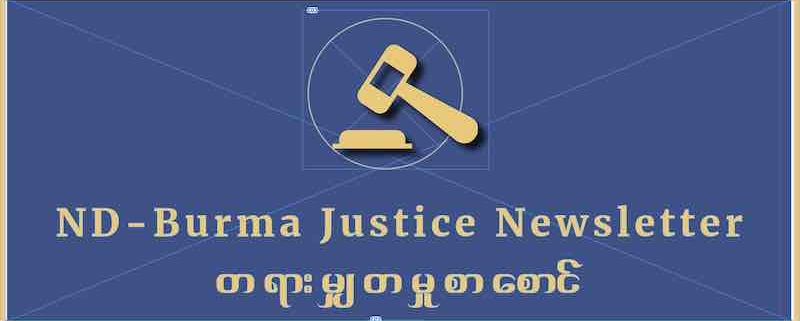Prospects for Peace in Myanmar
Achieving peace in Myanmar has been a long and troubling journey as the Myanmar junta has historically jeopardized and devastated all possibilites. This is evident through a long line of broken ceasefires and attacks on vulnerable, unarmed populations. Throughout different periods, the violence perpetrated against ethnic people has led to hundreds of thousands fleeing for their lives to border areas in order to seek refuge. Since the attempted military coup on 1 February 2021, efforts for peace have all but exhausted themselves as the terrorist-in-chief, Min Aung Hlaing, attempts to engage on a peace dialogue with ethnic armed organizations.
To ND-Burma members, such as the Association Human Rights Defenders and Promoters, peace is rooted in freedom from civil war, and agreement and harmony among all people. One challenge that has remained across Myanmar’s seven decades of brutal warfare has been building a truly federal arrangement that addresses the self-governance aspirations:
“For a multicultural society like Myanmar, the greatest test of democracy and peace is whether the government treats its minorities equal to the majority,” said Ko Aung Zaw Oo of the Association Human Rights Defenders and Promoters.
“Peace building becomes strategic when it works over the long run and at all levels of society to establish and sustain relationships among people locally and globally,” he added.
Unity is also a significant challenge as noted by ND-Burma affiliate member the Chin Human Rights Organization (CHRO). A free and fair federal union has long been the goal of ethnic people who believe peace is rooted in, “the right to work without any interference and disturbance when working in a group,” said Salai Benjamin, a field staff at CHRO, adding peace requires that everyone is equal.
At its core, one of the major challenges to achieving peace in Myanmar has been the deeply flawed and problematic 2008-military drafted Constitution. The document protects the military junta across nearly all legal and social sectors of society. This on its own also enables and emboldens impunity.
In addition, chauvinism and authoritarian rule have undermined prospects for peace as the military corrupts the economy. There is a lack of rights for ethnic people who have long felt marginalized and discriminated against. Consequently, there is a lack of trust in the peace building process.
ND-Burma member, the Kachin Women’s Association Thailand, has advocated for truth-seeking and protection mechanisms to be developed.
“The Myanmar Army commits atrocities against civilians and deliberately commits genocide and war crimes as well as crimes against humanity,” said Ah San, the Program Coordinator of the Documentation and Research Program at ND-Burma member organization, the Kachin Women’s Association Thailand (KWAT).
Women have also routinely been denied roles in the peace building process, and have had their inputs and experience side-lined. “Women must be involved and must be supported in any matters related to peace,” said Ah San from KWAT.
Another key element discussed by ND-Burma members as it relates to peace is the importance of reparations and truth-seeking initiatives to ensure that past grievances are resolved through an inclusive process of national reconciliation. This begins by dismantling the Myanmar military and reinstating the democratically elected National League for Democracy.



